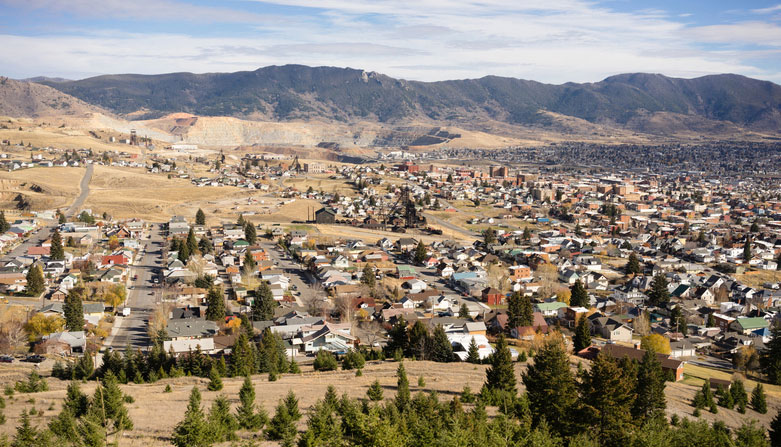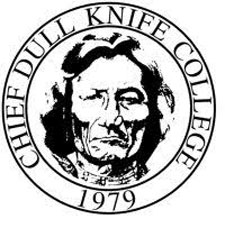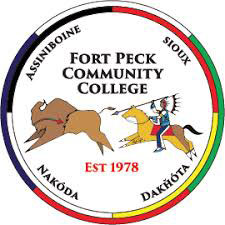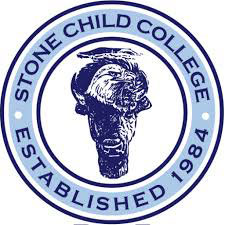Written by Dr. Emily R. Thornton, PhD, LCADC , Last Updated: November 6, 2025
Becoming a Licensed Addiction Counselor (LAC) in Montana requires earning at least an associate degree in a relevant field, completing 1,000 hours of supervised experience, and passing a national certification exam. The process typically takes 2-4 years depending on your starting education level and whether you study full-time or part-time.
Table of Contents

In Montana, the escalating drug crisis is starkly evident with fentanyl rapidly becoming the top public safety threat. The state has witnessed a sharp increase in fentanyl-related overdose deaths, surging by over 1,100% since 2017, and opioid-related emergency services are up 57% over 2021. This deadly trend underscores the urgent need for dedicated substance abuse counselors to combat the epidemic.
Montana also grapples with high rates of alcohol and methamphetamine abuse. The alcohol-induced death rate in Montana is significantly higher than the national average, and methamphetamine-related hospitalizations and crimes have risen sharply since 2015. These alarming statistics highlight the critical role substance abuse counselors play in supporting affected individuals and families.
Becoming a substance abuse counselor in Montana involves a commitment to addressing these pressing issues through prevention, treatment, and recovery support. Whether working in urban centers or rural communities, counselors are essential in guiding Montanans struggling under the weight of addiction towards healthier futures. Learn more about substance abuse counselor careers and the nationwide impact these professionals make.
Steps to Becoming Certified as a Substance Abuse Counselor in Montana
The Montana Board of Behavioral Health is the state agency responsible for licensing substance abuse counselors in Montana. They offer the Licensed Addiction Counselor (LAC) credential as the sole certification for substance abuse counselors in the state. For aspiring substance abuse counselors in Montana, obtaining this credential is the key step to entering the field. This guide will walk you through the process, and you can explore state and national certification requirements to understand how Montana's system compares to other states.
1. Earn an Associate Degree or Higher in a Relevant Field
2. Document 1,000 Hours of Supervised Treatment Experience
3. Take and Pass One of the Exams Recognized by the Montana Board of Behavioral Health
4. Apply to Become a Licensed Addiction Counselor (LAC)
The road to becoming an LAC in Montana just got a whole lot easier. We've broken down the certification process and provided you with clear, step-by-step instructions to help guide you through the certification process in Montana.
Timeline to Licensure
Your path to becoming a Licensed Addiction Counselor varies based on your starting point. Here's what to expect:
- Starting with no degree: 4-5 years total (2 years for associate degree, 1-2 years for supervised hours, plus exam preparation)
- Already have a bachelor's in a related field: 2-3 years (complete 330 coursework hours, accumulate 1-2 years of supervised experience)
- Full-time student path: 2.5-3 years (accelerated programs with concurrent supervision opportunities)
- Part-time or working adult path: 4-6 years (offers flexibility but extends the timeline)
1. Earn an Associate Degree or Higher in a Relevant Field
To start your journey toward becoming a Licensed Addiction Counselor (LAC) in Montana, you need to earn a minimum of an associate degree. The degree must be in a relevant field from an accredited institution. For a comprehensive look at your options, review our complete substance abuse counselor degree guide. Here are your Montana-specific options:
- Earn a Bachelor's or Advanced Degree in One of these Focus Areas: Alcohol and Drug Studies, Psychology, Sociology, Social Work, Counseling, Human Services, Psychiatric Rehabilitation, or Community Health
- Earn an Associate Degree or Post-Degree Certificate in One of these Focus Areas: Alcohol and Drug Studies, Addiction, or Substance Abuse
Either as part of the formal education program or in addition to it, you'll need at least 330 contact hours of addiction-specific education distributed as follows:
- Chemical Dependency Assessment and Patient Placement (60 hours)
- Counseling (90 hours)
- Pharmacology (30 hours)
- Ethics (10 hours)
- Alcohol and Drug Studies (30 hours)
- Treatment Planning and Documentation (30 hours)
- Multicultural Competency (20 hours)
- Co-occurring Disorders (30 hours)
- Gambling/Gaming Disorder Assessment and Counseling (30 hours)
2. Document 1,000 Hours of Supervised Treatment Experience
Next, you need to complete a supervised training program to become an LAC in Montana. This involves accumulating a minimum of 1,000 hours of supervised work experience in an addiction counseling qualified treatment program. Many Montana treatment facilities hire you as a counselor-in-training or associate counselor while you accumulate these required hours under supervision.
At least 500 of these hours must be in specific skill areas:
- Screening (30 hours)
- Assessment/patient placement (100 hours)
- Treatment planning (50 hours)
- Referrals (20 hours)
- Case management (50 hours)
- Individual counseling (60 hours)
- Group counseling (100 hours)
- Client education (35 hours)
- Documentation (35 hours)
- Professional and ethical responsibilities (10 hours)
- Multicultural competency (10 hours)
Supervision must be provided at a ratio of 20:1 client contact hours to supervision hours and must include group supervision, individual supervision, and 10 hours of direct observation. The 1,000 hours of supervised work experience must be completed in no more than two different qualified treatment programs.
Finding a Supervisor: Contact Montana treatment facilities directly for supervision opportunities, check with your training program for partnerships with clinical sites, or reach out to the Montana Board of Behavioral Health for lists of approved supervisors in your area.
3. Take One of the National Exams Recognized by the Montana Board of Behavioral Health
After completing your required education and supervised work experience, the next step to becoming a Licensed Addiction Counselor (LAC) in Montana is to take and pass a recognized exam. Montana accepts multiple national certifications, as outlined in our state and national certification guide. You need to pass one of the following exams:
- NAADAC Level 1 or Level 2
- Northwest Certification Board's Level II or III
- Southwest Certification Board's Level II
- IC&RC's ADC or AADC exam
Prepare for the exam by studying topics such as treatment admission, clinical assessment, treatment planning, counseling services, case management, discharge planning, legal and ethical issues, and physiology and psychopharmacology.
Submit your exam application to the chosen certification board and pay the necessary fee. Once approved, schedule your exam at a testing center or online. After taking the exam, you will typically receive your results immediately for computer-based tests or within a few weeks for paper-based tests.
4. Apply to Become a Licensed Addiction Counselor (LAC)
Congratulations on making it this far in your journey! The last step is to apply for the Licensed Addiction Counselor (LAC) credential. Gather all necessary documents, including official transcripts, verification of addiction-specific courses, proof of 1,000 hours of supervised work experience in a qualified treatment program, and completed fingerprint and background check results from the Montana Department of Justice.
Additionally, you need to submit the Noncriminal Justice Applicant's Rights form, the Training and Supervision Plan form, and proof of passing one of the required exams.
Once your documentation is ready, submit your application online through Montana eBiz or download a paper application from the Montana Board of Behavioral Health's website. The application fee is $250, payable by credit card, e-check, or check. Ensure you provide a valid email address for communication.
Unique Aspects of Substance Abuse Counseling in Montana
Working as a substance abuse counselor in Montana comes with unique challenges and opportunities that differ from many other states. Understanding these factors can help you prepare for a meaningful career in the field.
Rural and Tribal Considerations
Montana's vast rural landscape and seven tribal reservations create unique counseling challenges and opportunities. Many of the state's addiction counseling programs are offered through tribal colleges, preparing counselors to work with American Indian populations facing historical trauma alongside addiction. Rural counselors often serve large geographic areas with limited resources, making telehealth an increasingly important tool for expanding access to underserved communities.
If you're considering work on tribal lands, cultural competency training becomes especially important. Several Montana programs specifically address the intersection of addiction treatment and Native American healing traditions.
Montana's Opioid and Methamphetamine Crisis Response
With fentanyl deaths surging over 1,100% since 2017, Montana has prioritized Medication-Assisted Treatment (MAT) and harm reduction approaches. Counselors with MAT training and experience integrating medication with counseling are in high demand across the state. The state's methamphetamine crisis also remains severe, requiring specialized approaches for stimulant use disorders.
Montana treatment facilities increasingly seek counselors trained in evidence-based practices like Contingency Management and the Matrix Model specifically designed for methamphetamine addiction.
Veteran Population
Montana has one of the highest per-capita veteran populations in the United States. Specialization in trauma-informed care, PTSD treatment, and veteran-specific addiction treatment significantly enhances employability. Many counselors in Montana work with Veterans Affairs programs or facilities serving military families.
Substance Abuse Counselor Jobs in Billings, Missoula, and Throughout Montana
Montana offers a variety of settings where substance abuse counselors can make a meaningful impact. In Billings, facilities like Rimrock provide comprehensive treatment programs, including inpatient, outpatient, and detox services. Rimrock is one of the largest addiction treatment centers in the region, focusing on holistic care that addresses emotional, physical, spiritual, and social well-being. Another notable facility in Billings is Billings Addiction Counseling, which offers outpatient treatment and specializes in individualized care for those affected by addiction.
Other notable facilities throughout Montana include:
- Cedar Creek Integrated Health: Located in multiple locations, including Billings, this facility offers a variety of services aimed at treating addiction and promoting overall wellness
- Western Montana Mental Health Center (WMMHC): This center provides comprehensive behavioral health services across 15 counties, ensuring access to essential mental health and addiction treatment services
- Crosswinds Recovery: Based in Missoula, Crosswinds provides supportive housing and outpatient treatment, focusing on helping individuals stabilize in early recovery and access necessary resources
As a substance abuse counselor in Montana, you'll be at the forefront of helping individuals and families overcome addiction, contributing to healthier communities throughout the state. With a variety of job settings and a strong demand for services, this is a rewarding career path for those committed to making a difference.
Substance Abuse Counselor Salary in Billings, Missoula, and Throughout Montana
Understanding salary expectations is crucial when planning your career path. According to the Bureau of Labor Statistics (BLS), substance abuse counselors in Montana earned a median salary of $52,490 as of May 2023. Entry-level professionals in this field earned approximately $33,600 annually, while highly experienced substance abuse counselors earned closer to $75,800.
These figures compare favorably to Montana's lower cost of living, particularly outside major cities. When evaluating national substance abuse counselor salary data, Montana's median represents approximately 85% of the national median, but with significantly lower housing and living expenses in most communities.
Regional salary variations within Montana:
- Billings: As of May 2023, the BLS reported a median salary of $52,490 for substance abuse counselors in Billings. Less experienced counselors earned about $34,650 during this time, while the top counselors earned about $75,020
- Missoula: According to the BLS, substance abuse counselors in Missoula earned a median salary of $56,040 as of May 2023. Those with less experience earned around $35,030, while more experienced counselors earned about $69,990
Salary Growth Potential: With advanced credentials like LCPC (Licensed Clinical Professional Counselor) or clinical supervisor roles, Montana counselors can earn $70,000-$85,000 annually. Private practice counselors and clinical directors at larger facilities may exceed these ranges.
Benefits and Incentives: Many Montana treatment facilities offer comprehensive benefits including health insurance, retirement plans, and continuing education funding. Some rural facilities provide student loan forgiveness programs or sign-on bonuses to attract counselors to underserved areas. Veterans Affairs positions often include federal benefits packages.
Substance Abuse Counselor Degree Options in Montana
Montana colleges and universities offer various programs that meet the requirements for substance abuse counselor certification. For example, Great Falls College MSU provides an Associate of Arts in Substance Abuse & Addictions Counseling. This hybrid program prepares students for entry into the addiction counseling field by combining general education with specialized coursework in addiction studies.
Additionally, the University of Montana offers a Chemical Addiction Studies Certificate through Missoula College. This 25-credit program can be completed entirely online and equips students with the necessary skills and knowledge to pursue a Licensed Addiction Counselor (LAC) license.
These programs offer flexible and accessible options for those looking to pursue a career in substance abuse counseling in Montana, whether through on-campus, hybrid, or fully online formats. The prevalence of tribal college programs reflects Montana's commitment to culturally competent addiction treatment across diverse communities.
Aaniiih Nakoda College
Accreditation: NWCCU
Campus

Associate Degrees
- AA in Human Services with an option in Chemical Dependency Counseling
Blackfeet Community College
Division of Human Services
Accreditation: NWCCU
Campus

Associate Degrees
- AA in Addiction Studies
Chief Dull Knife College
Accreditation: NWCCU
Campus

Associate Degrees
- AA in Addiction Studies
Dawson Community College
Accreditation: NWCCU
Online

Associate Degrees
- AA in Chemical Dependency Counseling
Flathead Valley Community College
Social Science Division
Accreditation: NWCCU
Campus

Associate Degrees
- AA in Substance Abuse Counseling
Fort Peck Community College
Accreditation: NWCCU
Campus

Associate Degrees
- AA in Chemical Addiction Studies
Little Big Horn College
Accreditation: NWCCU
Campus

Associate Degrees
- AA in Human Services-Addiction Studies option
Montana State University
Department of Counseling
Accreditation: NWCCU
Campus, Online

Master's Degrees
- MS in Clinical Mental Health Counseling with a Graduate Certificate in Addiction Counseling included
Graduate Certificates
- Graduate Certificate in Addiction Counseling
Salish Kootenai College
Liberal Arts and Social Sciences Division
Accreditation: NWCCU
Campus

Associate Degrees
- AA in Chemical Dependency Counseling
Stone Child College
Accreditation: NWCCU
Campus

Associate Degrees
- AS in Addiction Studies
University of Montana
Missoula College, Department of Applied Arts and Sciences
Accreditation: NWCCU
Online

Undergraduate Certificates
- Certificate of Technical Studies (CTS) in Addiction Studies
University of Providence
School of Liberal Arts and Sciences
Accreditation: NWCCU
Online

Undergraduate Certificates
- Post-Bac Addictions Counseling Certificate
Associate Degrees
- AA in Addictions Counseling
Bachelor's Degrees
- Minor in Addiction Counseling
Master's Degrees
- MS in Clinical Mental Health Counseling with an Addiction Counseling concentration
Graduate Certificates
- Graduate Certificate in Addiction Counseling
Frequently Asked Questions About Becoming a Substance Abuse Counselor in Montana
How long does it take to become a Licensed Addiction Counselor in Montana?
The timeline varies based on your starting point. If beginning with an associate degree, expect 2-3 years for the degree plus 1-2 years for supervised hours, totaling 3-5 years. If you already have a qualifying bachelor's degree, you can complete the required 330 coursework hours and 1,000 supervised hours in 2-3 years. Full-time students in accelerated programs with concurrent supervision opportunities may complete requirements in as little as 2.5 years.
Can I work as a counselor while completing my supervised hours?
Yes. Many Montana treatment facilities hire individuals as counselors-in-training or associate counselors while they accumulate the required 1,000 supervised hours. This arrangement allows you to gain practical experience, earn income, and work toward licensure simultaneously. Contact facilities directly about these opportunities.
What's the difference between LAC and LCPC in Montana?
The LAC (Licensed Addiction Counselor) specializes specifically in substance abuse treatment and requires a minimum of an associate degree. The LCPC (Licensed Clinical Professional Counselor) is a broader mental health license requiring a master's degree and covers various counseling specialties, including but not limited to addiction. LCPCs can practice addiction counseling along with general mental health counseling, marriage and family therapy, and other clinical areas.
Are online programs accepted for Montana LAC licensure?
Yes. The Montana Board of Behavioral Health accepts degrees from accredited online programs. Several schools listed above offer fully online or hybrid formats. The critical requirement is that your program covers the 330 hours of addiction-specific coursework distributed across the required topic areas. Always verify that an online program meets Montana Board requirements before enrolling.
Where do I find a qualified supervisor for my 1,000 hours?
Start by contacting Montana treatment facilities directly, as many have established supervision programs. Your training program may also have partnerships with clinical sites offering supervision. The Montana Board of Behavioral Health maintains lists of approved supervisors. Professional associations like the Montana Addiction Professional Association can connect you with supervisors in your area. Rural counselors may access supervision through telehealth arrangements.
How much does the certification process cost in Montana?
Costs include your degree program tuition (varies by institution), the national exam fee ($195-$400 depending on which exam you choose), the Montana Board application fee ($250), and fingerprint/background check fees (approximately $50-75). Total costs range from several thousand dollars for community college associate programs to $30,000+ for bachelor's or master's degrees. Many programs offer financial aid, scholarships, and payment plans.
Do I need continuing education to maintain my LAC license?
Yes. Montana requires licensed addiction counselors to complete continuing education credits for license renewal. Contact the Montana Board of Behavioral Health for current requirements, as these can change. Professional development is ongoing in this field, with regular updates to evidence-based practices and treatment modalities.
Can I specialize in certain populations or treatment approaches?
Absolutely. Montana counselors often specialize in areas like adolescent treatment, co-occurring mental health disorders, trauma-informed care, MAT (Medication-Assisted Treatment), family therapy, or work with specific populations like veterans or tribal communities. Additional certifications and training in these specializations can enhance your career prospects and earning potential.
Key Takeaways
- Montana's sole addiction counselor credential is the Licensed Addiction Counselor (LAC) issued by the Montana Board of Behavioral Health
- Minimum education requirement is an associate degree in addiction counseling or related field, plus 330 hours of specialized addiction coursework distributed across nine specific topic areas
- You'll need 1,000 supervised clinical hours with at least 500 hours in specific skill areas, completed at no more than two treatment facilities
- Pass one of six accepted national exams: NAADAC Level 1/2, Northwest Board Level II/III, Southwest Board Level II, or IC&RC ADC/AADC
- Montana offers 13 approved programs ranging from associate degrees at tribal colleges to master's degrees with online options
- Median salary is $52,490 statewide with lower cost of living than national averages, making it competitive with other states when adjusted for expenses
- Montana's unique landscape creates opportunities in rural health, tribal community counseling, and veteran services with high demand for MAT-trained counselors addressing the state's opioid crisis
Ready to Start Your Path to Becoming a Montana Addiction Counselor?
Compare accredited substance abuse counseling programs across Montana and find the degree path that fits your timeline and career goals. Explore associate through master's level options with flexible online and campus-based formats designed for working adults.
Explore Degree Programs2024 US Bureau of Labor Statistics salary and employment figures for Substance Abuse, Behavioral Disorder, and Mental Health Counselors reflect state and national data, not school-specific information. Conditions in your area may vary. Data accessed November 2025.








